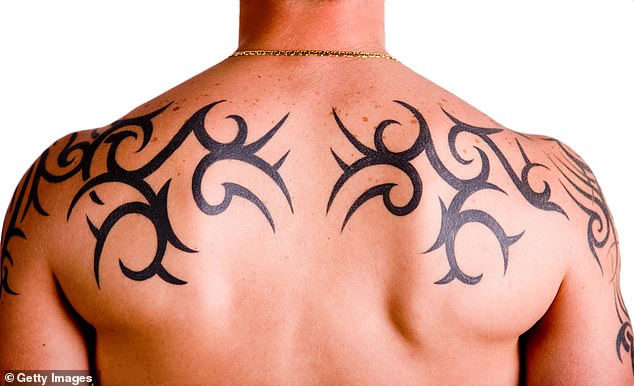
The Hidden Meanings Behind Tattoos
Tattoos have long been associated with rebellion and nonconformity, but today they are widely recognized as a form of personal expression across the globe. In the UK, over a quarter of people now have tattoos, ranging from intricate full-sleeve designs to delicate floral patterns. This shift in perception raises an intriguing question: what do your tattoos really say about you?
A recent study conducted by researchers at Michigan State University explored how people make judgments based on someone's tattoos. According to their findings, individuals with cheerful and colorful tattoos are often seen as more agreeable, while those with death-themed tattoos may be perceived as less pleasant.
William J Chopik, the lead author of the study, noted that while many believe tattoos reveal deep truths about a person’s personality, these impressions often don’t hold up. “People tend to make assumptions based on what they see, but these assumptions are not always accurate,” he said.
The history of tattoos dates back thousands of years, with the earliest known examples found on Otzi the Iceman, a mummy discovered in the Alps. These markings date back approximately 5,000 years. Despite this long history, the way people interpret tattoos and associate them with personality traits remains unclear.
The research team aimed to uncover how tattoo content influences perceptions. They recruited 274 adults aged 18 to 70, all of whom had at least one tattoo. Participants completed a Big Five personality questionnaire to evaluate their levels of agreeableness, conscientiousness, extroversion, neuroticism, and openness to experience. They also shared photos of their tattoos and explained their meanings.
The study identified several patterns in how people judge others based on their tattoos:
- More life (vs. death) imagery or comforting (vs. disturbing): Associated with being more agreeable
- High quality or more concrete (vs. expressionist): Linked to higher conscientiousness
- Larger or more traditional (vs. modern): Suggests greater extroversion
- Smaller, more death (vs. life) imagery, or more original (vs. generic): Often linked to neurotic tendencies
- Large, no affiliative symbols (e.g., sports teams, school logos), or comprised of images (vs. words): Indicates openness to experience
In total, 375 tattoos were collected and evaluated by 30 participants who rated the individuals behind them. The results confirmed that people do make judgments based on tattoos—often influenced by the imagery and style.
For instance, someone with a small, cute daisy tattoo might be seen as more agreeable than someone with a large, grotesque skull tattoo. Cheerful or comforting imagery tends to create a positive impression, while high-quality or concrete designs suggest a more conscientious personality.
However, these assumptions were mostly inaccurate and did not reflect the true personalities of the tattoo owners. The only significant correlation was found between openness to experience and having "wacky" tattoos.
Mr. Chopik emphasized that while most assumptions about tattoos are incorrect, there are exceptions. “Wacky tattoos can genuinely reflect a person's openness to experience,” he added.
The researchers hope their findings will encourage people to avoid making hasty judgments based on tattoos. For example, someone with a skull and gun tattoo might be misinterpreted as antisocial, when in reality, they could simply be a fan of a band whose logo features those elements.
Ultimately, the study highlights the importance of looking beyond surface-level assumptions and recognizing that tattoos, like many other forms of self-expression, do not always tell the full story.
Post a Comment